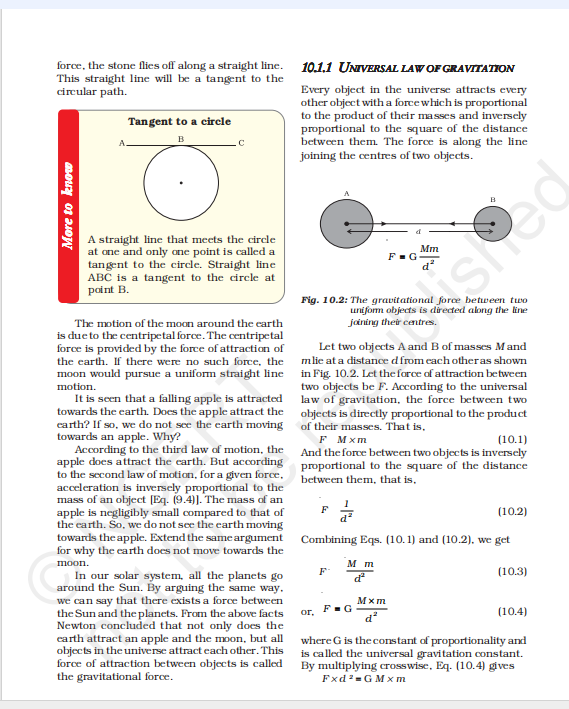Create very difficult numerical and application based questions from the image given.

Understand the Problem
The question is asking for the creation of advanced numerical and application-based problems related to the concepts of the universal law of gravitation presented in the given image.
Answer
The gravitational force is approximately $$ F \approx 8.34 \times 10^{-10} \, \text{N}. $$
Answer for screen readers
The gravitational force between the two masses is approximately $$ F \approx 8.34 \times 10^{-10} , \text{N}. $$
Steps to Solve
- Understanding the Universal Law of Gravitation
The Universal Law of Gravitation states that every two objects attract each other with a force ($F$) given by the equation: $$ F = \frac{G \cdot M \cdot m}{d^2} $$ where $G$ is the gravitational constant, $M$ and $m$ are the masses of the two objects, and $d$ is the distance between their centers.
- Setting Up a Problem
Let’s create a problem using the universal law. Consider two masses:
- Mass $M = 5 , \text{kg}$
- Mass $m = 10 , \text{kg}$
They are located $d = 2 , \text{m}$ apart.
- Calculating the Gravitational Force
Using the formula, calculate the gravitational force between these two masses. The gravitational constant $G$ is approximately: $$ G \approx 6.674 \times 10^{-11} , \text{N m}^2/\text{kg}^2 $$
Plugging the values into the equation: $$ F = \frac{(6.674 \times 10^{-11}) \cdot 5 \cdot 10}{(2^2)} $$
- Performing the Calculation
First, calculate the denominator: $$ 2^2 = 4 $$
Then, substitute back into the equation: $$ F = \frac{(6.674 \times 10^{-11}) \cdot 5 \cdot 10}{4} $$
- Final Calculation
Now, compute the product: $$ F = \frac{(6.674 \times 10^{-11}) \cdot 50}{4} $$ $$ F = \frac{3.337 \times 10^{-9}}{4} $$ Finally, $$ F = 8.3425 \times 10^{-10} , \text{N} $$
The gravitational force between the two masses is approximately $$ F \approx 8.34 \times 10^{-10} , \text{N}. $$
More Information
This force is extremely small due to the relatively small masses and the distance involved. The gravitational interaction between everyday objects is usually negligible in comparison to other forces at play, such as friction.
Tips
- Forgetting to square the distance $d$ in the denominator, leading to incorrect calculations of the force.
- Mixing up the gravitational constant $G$ and using incorrect units.
- Not converting units consistently, particularly when dealing with larger or smaller quantities.
AI-generated content may contain errors. Please verify critical information